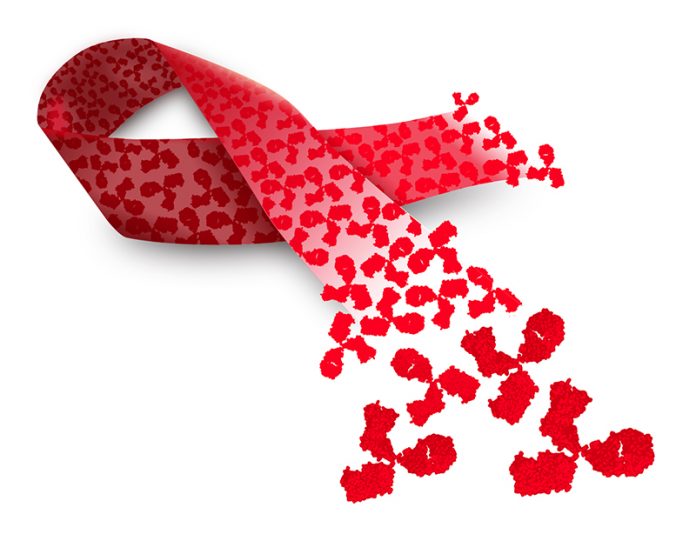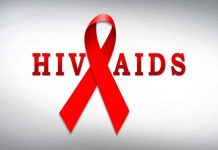This article is written by Devanshee Rai, pursuing BA.LLB (Hons.) from NMIMS, School of Law, Bengaluru and is edited by Gitika Jain. This article talks about what exactly is HIV and AIDS and the stigma around it. It further mentions about the HIV and AIDS (Prevention and Control) Act, 2017.
Table of Contents
Introduction
An infection caused by the Human Immunodeficiency Virus (HIV) which produces a series of conditions(influenza-like illness) is called Acquired Immunodeficiency Syndrome (AIDS). If you catch the virus, then the symptoms may not be visible or there may be a short period of influenza-like illness. Internally, the virus attacks your immune system, which could further lead to diseases like Tuberculosis, as well as other infections or rare tumours. These symptoms are usually discovered late and can also result in weight loss due to the degradation of health.
Unprotected sex, contaminated blood transfusions, hypodermic needles, from mother to child during delivery, pregnancy or breastfeeding are the main reasons for the spread of the disease. Some of the myths of the spread of AIDS is that fluids such as saliva, tears and sweats spread HIV. There are some prevention methods, to name a few are as follows:
- Safe Sex.
- Giving treatment to those who are infected and then pre and post-exposure prophylaxis.
- There is a child antiretroviral medicine that can be given both to the mother and child. As such, there is no vaccine for AIDS/HIV but after giving such medicines the life expectancy can be increased, nearly to a normal life span.
Treatment is very important for AIDS/HIV otherwise the life expectancy can be a maximum of 11 years after being infected.
For controlling the spread of the virus and safeguarding the rights of the infected people, the Human Immunodeficiency Virus and Acquired Immunodeficiency Syndrome (Prevention and Control) Act, 2017 was passed on 20th April 2017 by the Parliament. Lawyers Collective, a non-governmental organization, sent it as a draft bill to the National AIDS Control Organization. The main goal of the Act is to stop the discrimination against the infected people and to spread awareness regarding the illness and its spread.
Objective and scope of the Act
The objectives and scope of the Act are as follows:
- To stop the stigma revolving around HIV or AIDS.
- To stop discrimination involving HIV or AIDS.
- To punish people who are involved in the stigma development and discrimination involving HIV or AIDS.
- To provide equal rights and opportunities to the infected people.
Issues and challenges
There are many issues revolving around the Human immunodeficiency virus (HIV) and Acquired immunodeficiency syndrome (AIDS). Some are as follows:
- There is a lot of stigma and discrimination around HIV and AIDS. A good amount of emphasis should be laid upon the stigma around HIV and AIDS because it affects a person mentally. The discrimination faced by infected people in public facilities, the workspace, household, etc was criminalised by the Act, and they were provided with insurance rights. But there was no improvement in the reduction of stigma revolving around HIV and AIDS and the views of the people in 2016 were as same as they were in 2006. Even after a decade, the mindset of the people has not changed. They are discriminated against everywhere and it is still prevalent. The women patients are still prohibited from living with their children and mostly the infected people were not allowed to share the same household. People usually thought that they were suffering because they deserve this.
- One of the most important issues of HIV and AIDS is gender inequality. Women suffer the most because of the gender imbalance between men and women. They face violence from their intimate-partner which can also include sexual violence. In India, according to a study, one in five women face sexual violence which can end up men not wearing a condom. This situation leads women to become prone to HIV. The stigma revolving around HIV and AIDS does not even spare children. Children born with AIDS are not allowed by their parents to get the diagnosis because of the pressure from society.
- Data issues are also one of the problems of HIV and AIDS. A proper analysis, more efficient access and applied use of data is the need of the hour. We are lagging behind in many ways which are basically regarding quality database, a lack of structure, key population size estimates, and there is also the incompetent staff who is unable to monitor the epidemic.
- HIV testing kits, distribution of ARVs (medication of HIV) and other HIV commodities have also not been in great supply.
Key provisions of the Act
The provisions of the Act are as follows:
- The discrimination faced by infected people is prohibited in this Act. This Act prevents the spread of HIV and AIDS.
- Without the permission of the concerned person, no HIV test, medical treatment, or research can be conducted.
- There is a right to reside in a shared household mentioned in the Act for the infected person who is below the age of 18.
- Any person engaged in the publication and advocacy of hate against any infected person is prohibited against this act.
- There should be an ombudsman in every state so that he/she can look after the complaints and necessities regarding HIV and AIDS.
- A person who is found to spread hatred against any infected person would be punished with a minimum of three months to a maximum of two years imprisonment with a fine which may extend up to one lakh.
- For every infected person, Antiretroviral Therapy (ART) is a legal right.
- Any person who has been tested positive would qualify for ‘test and treat’ policy where he will be treated free of cost.
- HIV prevention, testing, treatment and counselling services are rights of every infected person under a State’s guardianship.
Benefits of the Act
- The Act empowers a person living with HIV to disclose discrimination in housing, health care, education, public services, property rights, public office keeping and insurance.
- It forbids the exclusion of an HIV-positive person from segregation. Every HIV-person has the right to live in a shared household and use non-discriminatory facilities.
- The act reads: “No person shall, by the expression, either spoken or written, print, spread, promote or convey the feelings of hatred against any protected persons or community of protected persons by signs or visible representations or otherwise.”
- No person affected by HIV may undergo medical care, medical procedures or study without informed consent under the law. Furthermore, without her consent, no HIV-positive pregnant woman can be subjected to sterilisation or abortion.
Penalties on violation of the Act
The penalties faced by people who violate the Act mentioned under Chapter XIII are as follows:
- If Section 37 of the HIV and AIDS (Prevention and Control) Act, 2017 gets violated, the person would be punished with a term of not less than three months imprisonment to a maximum imprisonment of two years with fine which may extend to one lakh rupees or both.
- If a person violates the orders of the ombudsman as mentioned under Section 26 of the Act then he has to pay a fine of up to ten thousand and if he fails to pay the fine then he has to pay a fine of five thousand every day till he pays the fine.
- An individual will be penalised with a fine that can stretch up to one lakh rupees if he discloses an infected person’s HIV status without his or her permission or without a court order, or violates the ombudsman’s order and without testamentary guardianship.
- No person shall subject any other person or persons to any detriment on the grounds that such person or persons have taken any of the following actions, namely:
- made a complaint under this Act;
- brought proceedings under this Act against any person;
- furnished any information or produced any document to a person exercising any power or function under this Act; or
- appeared as a witness in a proceeding under this Act. Notwithstanding anything contained in the Code of Criminal Procedure, 1973, offences under this Act shall be cognizable and bailable.
Role of Central and state governments to ensure relief to infected people
The role played by the Central and state government to ensure relief to infected people are as follows:
- Better welfare schemes for the infected people are ensured by the Central government and every state government.
- The property of the infected people will be protected by the central and every state government.
- HIV and AIDS-related information, education and communication programmes which are age-appropriate, gender-sensitive, non-stigmatising and non-discriminatory programmes have been made by the state and Central government.
- Infected children would be taken care of by the Central government under the set of guidelines for care, support and treatment.
- The Central government makes sure that without consent, an infected pregnant woman is not be subjected to sterilisation or abortion.
How does the Act prohibit discrimination against an infected person?
There are various penalties mentioned in the Act regarding discrimination against an infected person. The penalties have been discussed above. There are certain criteria for giving the penalty.
- If an infected person is treated unfairly during their employment
- If the infected person(below the age of 18 years) has been denied the right to reside in a shared household.
- If an infected person has been treated unfairly in healthcare services.
- If an infected person has been treated unfairly at the residing or renting property.
- If an infected person on a personal or a professional level has been handled unfairly.
- Where an infected person is handled unfairly in the provision of insurance.
Suggestions
The suggestion regarding the Act are as follows:
- There should be an awareness drive about the spread of Human immunodeficiency virus (HIV) and Acquired immunodeficiency syndrome (AIDS). Myths regarding it’s spread should also be busted. Special emphasis should be given to rural areas. The concept of safe sex and the use of condoms should be propagated. The rights of the infected person should also be discussed which are mentioned in the Act.
- Condoms should be very easily available and should be cheap.
- People who are already infected should be provided with physiologists as people with this illness suffer from a lot of mental health issues.
- The Central government and the state government should make a very vivid strategy in order to control the spread of HIV.
- The infected children should be provided with innovative policies by Integrated Child Development Services (ICDS).
- The medical workspace, law enforcement companies and the police must coordinate and should ensure that the drug users are not provided with unsafe needles.
- The infected children with the help of Anganwadi should learn about the ways to control the spread of the virus.
- Government policies should include the rights of sex workers keeping in mind the stigma they face in society.
- There should be more investment in the field of research to handle the situation.
Conclusion
Human immunodeficiency virus (HIV)/Acquired immunodeficiency syndrome (AIDS) is one of the major dangerous diseases. Once a person gets infected his life gets miserable. Promotion of wellbeing and insurance of a healthy life should be our main focus. Till now there is no efficient treatment to deal with the disease. The only cure is prevention in this situation. As the means of prevention, awareness should be spread and cheap medication should be available.
References
- https://lms.naco.gov.in/frontend/content/4%20HIV%20AIDS%20Act.pdf
- http://naco.gov.in/hivaids-act-2017
- https://www.jagranjosh.com/current-affairs/hiv-and-aids-prevention-and-control-act-2017-comes-into-force-1536726955-1
- https://futuremedicineindia.com/hiv-and-aids-prevention-control-act-2017/
LawSikho has created a telegram group for exchanging legal knowledge, referrals and various opportunities. You can click on this link and join:
 Serato DJ Crack 2025Serato DJ PRO Crack
Serato DJ Crack 2025Serato DJ PRO Crack









 Allow notifications
Allow notifications


